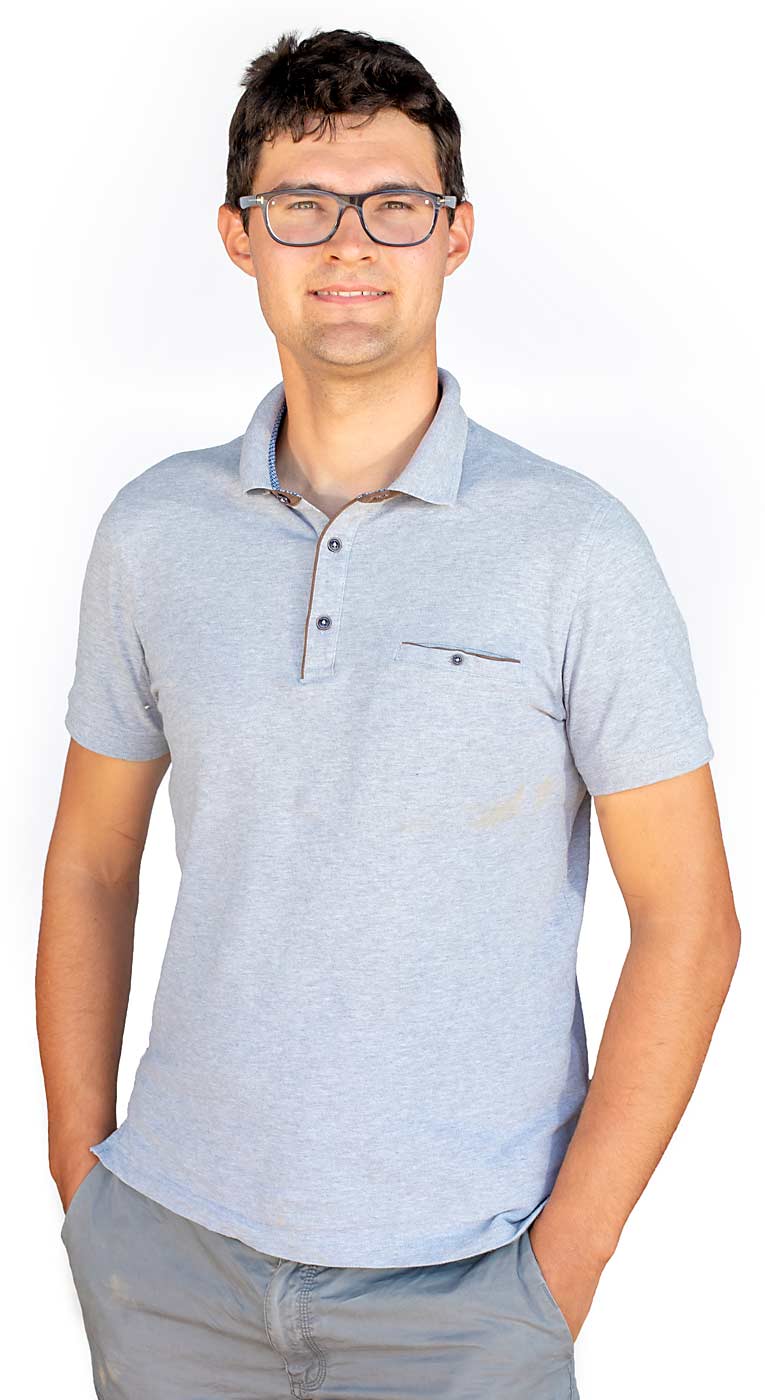family background / Michael grew up working at his family farm in the Alps in Northern Italy (elevation near 2,300 feet). The farm was converted by his mother and father, Rita and Thomas Mitterer, from a dairy to apples in the 1980s. Before joining the farm full time, he is pursuing internships in the U.S. and a master’s degree.
age / 24
crops / Apples
business / Pardellerhof Farm
 How did you get your start?
How did you get your start?
My first contact with agriculture was as a child helping my father in our orchard. I loved being outside and I thought agriculture was an interesting career.
At the age of 14, I chose a high school that was focused on agriculture, which led me to getting an undergraduate degree from an agricultural university in Bologna, Italy.
What is the South Tyrol area like?
Our family farm is located in a valley in the Italian Alps, near the border of Switzerland and Austria. Because of this, our climate is affected by surrounding glaciers, making the area not very hot or cold.
It is comparable to the Chelan area in Washington state. We receive about 20 inches of precipitation, which is considered low for European countries.
We don’t need to spray as much as other areas, like Germany, because of the low precipitation. One of our primary horticultural challenges is apple scab.
Why did your family switch to apples?
It was a strategic business decision. We changed our farm over to apples because the revenue is higher in apples than we’d receive from milk.
Most of the farmland is family-owned and many of the farms in our area have switched to growing apples. Only in the highest elevations, where you can’t grow apples, do farms continue to operate dairies.
What was your education like in Italy?
The high school curriculum was focused on general agriculture. For example, we learned about tree pruning and planting techniques, even how to work with cattle.
Besides foundational agriculture, we also studied chemistry, physics and other nonagricultural classes. During my bachelor’s coursework, I studied theoretical ag and put it into practice with my father on the farm.
I believe if you’re not doing the practical work, then you run the risk of losing what you’ve learned in college.
Why do an internship?
Internships can help people build connections and share information with others in our industry. It’s always like a gift and a gain in my opinion.
Being connected with other growers in the fruit industry can help you plan for the future, cooperatively solve similar problems and produce a better product for consumers.
What is the future at your farm?
We started using platforms to farm our apples and we’ve seen decreases in labor costs and increases in fruit quality.
Another change has been our use of mechanical pruning systems the past couple years. We’ve seen an increase of light penetration throughout the canopy, fruit quality has improved and picking speed has increased.
What have you learned from using mechanized hedging?
Most of the orchards in the Tyrol area are high density — usually 4,000 trees per hectare (about 1,600 trees per acre — a hectare is a little smaller than 2.5 acres), which is quite high compared with older orchards in Washington’s Yakima Valley.
At our orchard, we are hedging these rows back to 50 centimeters (about 20 inches) after harvest. Hedging at this time is important because the trees have strong root growth and it helps to decrease vigor.
We don’t hedge during the growing season; we only do correction pruning by hand. If we hedge at other times of the year, we’ve experienced regrowth with buds pushing out — and that’s not good, especially with the potential of apple scab and powdery mildew.
Using these methods, we expect to get about 60 to 70 tons per hectare from our Ambrosia block.
Why push for technology at a family farm?
At our farm, we work hard at adopting innovation, trying to do our best to use new technology. We want to make our orchards more competitive on the business side, and pedestrian on the horticultural side.
Why are you a farmer?
I’m passionate about fruit tree training systems, orchard optimization and mechanization of apple orchards.
These are also focus points for the future of our family farm. We are looking forward to making our orchards pedestrian or semi-pedestrian to decrease labor costs.
Because every year is different, it challenges me to be successful in ag.
– by TJ Mullinax






Leave A Comment